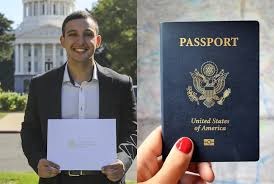Are you considering moving to the United States and wondering about the legal options available? With multiple immigration paths, each with unique requirements and benefits, it’s crucial to understand your choices. This guide explores legal immigration methods to help you find the path that best fits your situation.
Employment-Based Immigration
Employment-based immigration is one of the most popular ways to legally immigrate to the U.S. This option is suitable if you have specific job skills, education, or experience. The U.S. offers five main types of employment-based (EB) visas:
- EB-1 Visa: For individuals with extraordinary abilities, outstanding professors and researchers, and multinational executives or managers.
- EB-2 Visa: For professionals with advanced degrees or exceptional abilities.
- EB-3 Visa: For skilled workers, professionals, and other workers.
- EB-4 Visa: For special immigrants, including religious workers and employees of international organizations.
- EB-5 Visa: For investors who create jobs in the U.S. by investing a substantial amount in a U.S. business.
Each visa type has specific eligibility requirements, so it’s essential to work with an immigration lawyer or consult the U.S. Citizenship and Immigration Services (USCIS) website to determine which visa is right for you.
Family-Based Immigration
The U.S. allows citizens and lawful permanent residents to sponsor family members for immigration. Family-based immigration is divided into two categories:
- Immediate Relatives: Spouses, children (under 21 years of age), and parents of U.S. citizens. There is no cap on the number of immediate relatives allowed each year.
- Family Preference Categories: For extended family members like siblings, adult children, and married children of U.S. citizens, as well as relatives of lawful permanent residents. There are annual caps on these categories, leading to longer waiting times.
Family-based immigration is a good option if you have a U.S. citizen or lawful permanent resident relative who can sponsor you.
Diversity Visa (Green Card) Lottery
The Diversity Visa (DV) program, also known as the Green Card Lottery, is an annual lottery that provides up to 55,000 visas to individuals from countries with low rates of immigration to the U.S. This option is available to those who meet specific eligibility criteria, such as being from an eligible country and meeting educational or work experience requirements. The application period opens each fall, and winners are chosen randomly.
Asylum and Refugee Status
The U.S. offers asylum and refugee status to individuals who face persecution in their home countries based on race, religion, nationality, political opinion, or membership in a particular social group.
- Refugee Status: For people outside the U.S. who fear persecution and cannot return to their home countries.
- Asylum Status: For individuals already in the U.S. or at a port of entry who meet the requirements.
To apply, you must demonstrate a well-founded fear of persecution in your home country, and you should consult with an immigration attorney to guide you through this complex process.
Student Visas (F-1 and M-1)
Student visas allow international students to study in the U.S. at approved schools, universities, or vocational programs.
- F-1 Visa: For academic students attending an accredited U.S. institution, including universities, high schools, and language training programs.
- M-1 Visa: For vocational students pursuing non-academic programs, like technical or vocational training.
While a student visa does not directly lead to permanent residency, it can provide opportunities to transition to an employment-based visa after graduation if you find a qualifying job.
Other Specialized Visa Programs
In addition to the major visa categories, the U.S. offers specialized visa programs for unique situations, such as:
- Temporary Work Visas (H-1B): For highly skilled workers in specialty occupations.
- Cultural Exchange Visas (J-1): For exchange visitors, including au pairs, interns, and scholars.
- Temporary Protected Status (TPS): For individuals from specific countries affected by conflict, natural disaster, or other emergencies.
These programs provide temporary residency but may lead to permanent residency under certain circumstances.
(FAQs)
What are the most common ways to immigrate legally to the U.S.?
The most common ways include family-based immigration, employment-based visas, and the Diversity Visa (Green Card) Lottery. Other paths include asylum, refugee status, and student visas, depending on the individual’s circumstances.
Can I move to the U.S. if I don’t have a family sponsor?
Yes, you can still move to the U.S. through employment-based visas, the Diversity Visa Lottery, student visas, or asylum and refugee programs, provided you meet the specific eligibility requirements for these options.
How long does it take to get a Green Card?
The time it takes to obtain a Green Card varies depending on the immigration pathway. Family-based visas can take anywhere from a few months to several years, depending on the relationship and country of origin. Employment-based visas also have varying wait times based on demand and visa category.
What are the eligibility requirements for the Diversity Visa Lottery?
To be eligible for the Diversity Visa Lottery, applicants must be from an eligible country and meet specific education or work experience requirements. Each year, the U.S. Department of State publishes a list of eligible countries.
Can a student visa lead to permanent residency?
A student visa does not directly lead to permanent residency, but after graduation, a student may be eligible for an employment-based visa if they find a qualifying job, which can eventually lead to a Green Card.
Conclusion
Immigrating legally to the United States is possible through various channels, each catering to different personal and professional circumstances. From employment and family sponsorships to the Diversity Visa Lottery, numerous options are available to meet your unique needs. Navigating U.S. immigration law can be challenging, so it’s beneficial to consult with an immigration attorney to ensure you choose the best path.





